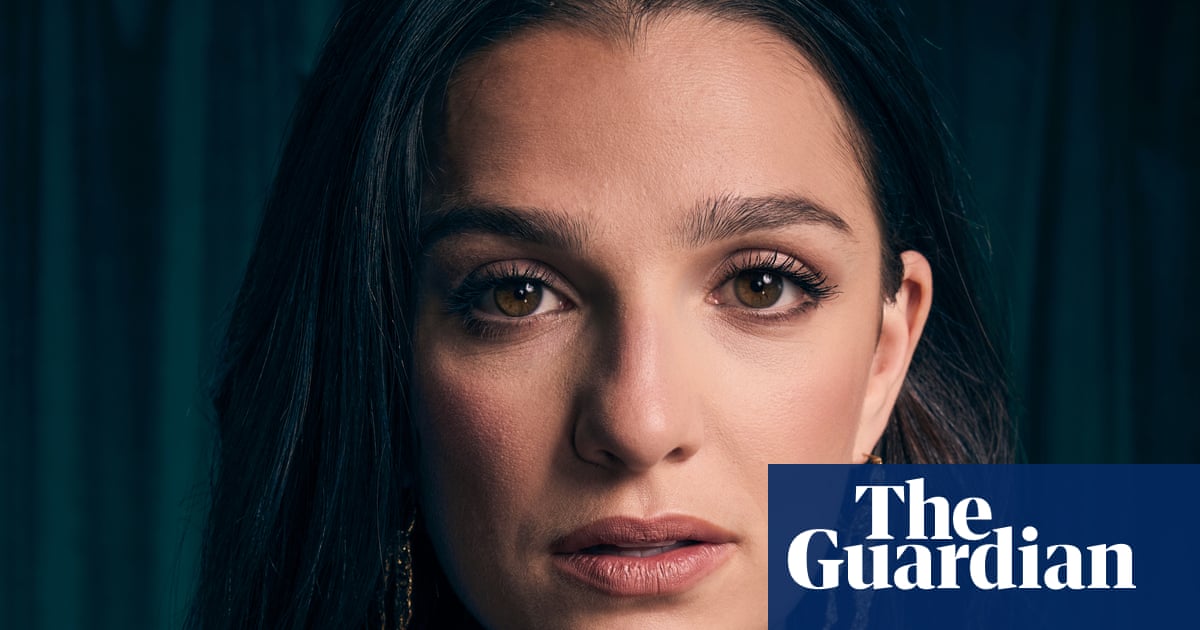When Marisa Abela landed the role of Yasmin, Industry’s traumatised heiress, she was still at drama school. Now, she’s a breakout star of the hit BBC/HBO series about the cut-throat world of finance. While the past couple of years have been stratospheric for the 28-year-old – she played Amy Winehouse in Sam Taylor-Johnson’s 2024 biopicBack to Blackscoring a Bafta rising star nomination, and was hand-picked by Steven Soderbergh for his recent star-studded thrillerBlack Bag– she’s excited to be back for the next instalment of the show that made her name. In fact, when we speak she’s sitting in a Pret, all smiles and warmth despite waiting for a severely delayed train from London to Cardiff, where she is filming the fourth series.
What was your reaction when you found out you’d been nominated for a TV Bafta?
It feels completely surreal. We’re filming Industry at the moment, so I was coming out of my trailer when I saw all of these missed calls from my agent. By the time I arrived on set, the whole crew was there, cheering.
What do you think about the scene with Yasmin and her father at the end of season three?
It’s not my place to judge her morally. I have to understand why she makes her decisions, and her dad behaves in a way that epitomises the narcissism that she grew up with. Adam Levy did such a great job of making Charles despicable.
How do you feel aboutHarry Lawteyleaving the show?
We all started out together, and we’ve had each other’s backs in a big way – we’re such a family. But I respect the fact that when Mickey [Down] and Konrad [Kay, the drama’s creators] make a move in the show, they stick by it. This season does feel different, but in an exciting way. People responded to Industry spreading its wings in season three and having greater ambitions. And I think that’s even more true of season four. It still feels like Industry, but it also feels like the most high-camp, crazy villain origin story of all time.
Do you have any similarities with Yasmin as a character?
Yasmin’s humour is probably where I’m closest to her. She’s not afraid of taking the piss out of herself or other people around her, and she’s quite dry. Thank God I’m not quite as cold-hearted or complicated as she is! And I think I’m able to be slightly more vulnerable.
There’s a lot of nudity init. Did you use an intimacy coordinator on set?
We’ve always had an intimacy coordinator. I see people complaining about them a lot; I just think it’s lazy to be irritated by them. I was 22 when I started filming Industry – when we think about how difficult the acting world has been for so long around issues of consent, the risk/reward is a no-brainer.
You playedAmy WinehouseinBack to Black. How did you deal withthe pressure and expectation that comes with a role like that?
As an actor, my job was to quieten all the noise and get as close as possible to the human behind that mythology. At the time, I was off my phone and off social media. But I knew the conversation that was happening, and there were paparazzi; that was difficult. It felt like jumping in at the deep end.
What would you say is going right and wrong with the TV industrynow?
There’s so much being made, which is great because there are so many jobs for actors. But on the flip side, there’s too much and people don’t know what to watch. Sometimes, if a show is on a big streaming platform, they can bury it and no one sees it, and it gets cancelled. If Industry was on a streaming platform, not on a TV network like HBO, it probably would have been cancelled after season one, because it didn’t have the numbers.
Do you have any guilty pleasure TV shows?
I mean, 90% of the shows I watch are guilty pleasures. I love every franchise of Real Housewives – I’ve just finished Beverly Hills. If you can call that guilty?
The BaftaTelevisionAwards with P&O Cruises is on BBC One and BBC iPlayer tomorrow at 7pm.
Catch the full lineup of our Bafta TV special launching across the weekend and starring best actor nominees David Tennant, Lennie James, Monica Dolan, Billie Piper, Richard Gadd, Marisa Abela and Sharon D Clarke
Read more in the series
